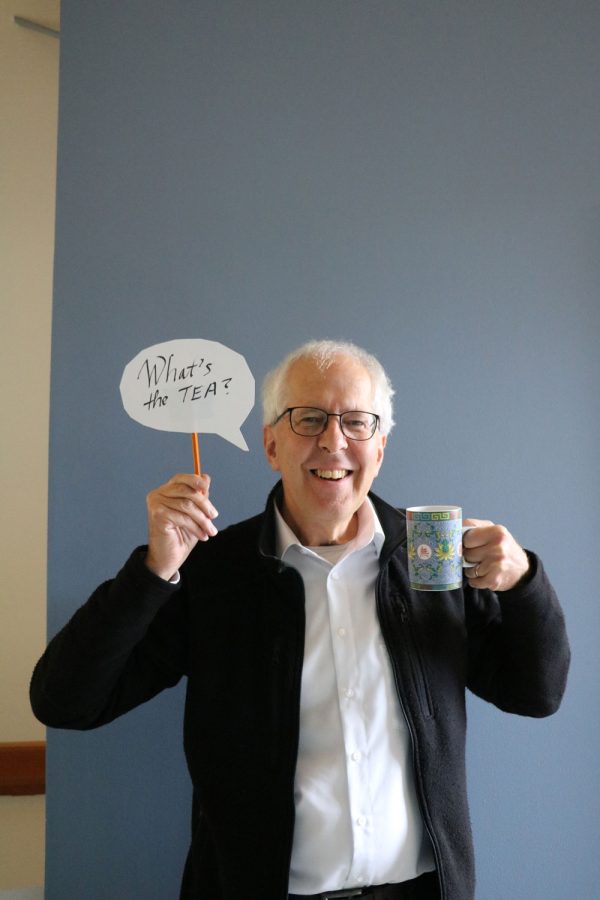You’re Spitting Facts, Bro
Different settings call for using different language
Photo: Sydney Goitia-Doran
History teacher Pat Grant is now aware that “tea” can describe both a hot, flavored drink and hot gossip.
While many current University Prep students know class of 2024 dean Pat Grant as a history teacher, they may not know he once danced his way to victory.
Imagine it’s Traditions Week in 2016. You’re a student participating in Dancing with the Stars, a competition across grades, and you choose Grant to be your dance partner. Against all the odds, you win.
While referring to your win in his speech at graduation, Grant says a simple sentence that makes laughter echo throughout the room.
“Yes, we won that competition,” Grant said. “It was lit.”
UPrep’s humanities and language departments work hard to teach students the ins and outs of English. But that doesn’t stop students from using slang, informal words and phrases that teachers are often unfamiliar with.
“Most often we communicate pretty well,” Grant said. “There are a lot of words that students use that I don’t understand, but I think that they don’t necessarily want me to understand them and they use them among themselves.”
Words’ meanings can change over time. Grant shared that when he said “lit,” some of his colleagues approached him afterward about the origins of the word.
“I think this is an important lesson. From teenagers’ point of view, its origin is not so important,” Grant said. “The fact that it’s the modern form of ‘cool’ is what’s important.”
While “lit” and “dope” were historically used in reference to marijuana, now teens commonly use them as wholesome affirmations. Junior Mohamed Hassan thinks there is an important distinction between slang and derogatory language.
“Saying a slang word isn’t derogatory. It isn’t a cuss word. If most people in the class understand it, I would say it,” Hassan said. “If I was in a room full of older people, I would refrain from using that because they wouldn’t even understand what that meant.”
Grant believes curse words are inappropriate to say at school, and isn’t afraid to speak his mind when he hears one. When students ask Grant’s reasoning behind his cursing philosophy, he explains it is risky.
“That might be a judgment that will be passed on by a potential employer,” Grant said. “If you’re in the habit of using swear words you’re more likely to let one slip out in a job interview.”
Younger generations have to navigate communicating successfully with adults and their peers, so being with different people can mean using different vocabulary.
“When I’m with an audience my age, I will definitely use slang more, and use words they’re accustomed to and I’m accustomed to,” Hassan said. “But when I’m with my parents, per se, I would definitely speak in a more formal kind of tone.”
Sophomore Faysal Farah explained students changing their language in front of teachers is similar to his experience being multilingual.
“When I usually speak to my grandparents I know to speak Somali instead of speaking English since they won’t really understand,” Farah said.
Regardless of language or age, being considerate is the number one priority for Grant when communicating with others.
“I prefer to speak to everyone in a way that’s respectful and attentive,” Grant said. “And regardless of whether that person is a student or a colleague, I will speak to them in the same way, because that’s important.”
Your donation will support the student journalists of UPrep.

